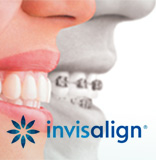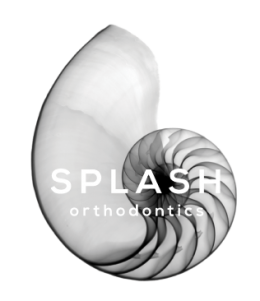Invisalign Cost

Invisalign is the most expensive braces option because of its low invasiveness and discrete design. Invisalign treatments vary depending on where your dentist is based and your specific requirements. Some Invisalign costs can start as little as £2,500 if you only require minimal treatment. However, for more complex cases, your Invisalign cost may fall in the region of £3,000 – £6,000 but this will be up to the discretion of your orthodontist.
How Much Does Invisalign Cost?
Your Invisalign cost is determined by a few factors, specifically the extent of the alignment your teeth require and the number of Invisalign aligners you need during your course of treatment. There is never ‘one cost’ for Invisalign, as each patient will require a treatment specific to their current teeth alignment. You may find that typical Invisalign costs are between £2,500 (for minor treatment) and nearing £6,000 for more complex cases. Again, your final Invisalign price will be decided during your consultation with your orthodontist.
Invisalign Cost for Top Teeth Only
Sometimes patients feel as if they only require Invisalign treatment for their top teeth. This treatment is known as Invisalign Express and is often recommended to patients who don’t necessarily require the full Invisalign treatment and are only looking to straighten their top teeth.
Before this Invisalign treatment can be considered, you will need to have a consultation with your orthodontist. Your orthodontist will then assess the alignment of both your top and bottom teeth to see if you qualify for Invisalign Express treatment. The treatment follows the same process as regular Invisalign, the only difference being one mould is made for your top teeth (or bottom, depending on your requirements). If your orthodontist thinks your alignment may be too severe for Invisalign, then fixed braces may be an alternative option.
Common misalignment issues include:
- Overcrowding of teeth
- Overbite
- Underbite
- Crooked teeth
If your alignment problem isn’t severe, then it’s likely you will be an appropriate candidate for both Invisalign treatment and Invisalign Express. Again, you will be given more guidance on your treatment options from your orthodontist during your consultation.
Why Choose Invisalign?
 Invisalign is currently the most popular teeth straightening treatment in the dental and orthodontic industry. Invisalign’s main advantage over traditional braces is that the treatment is discrete and the Invisalign clear aligners are removable. This means patients are able to eat and drink anything because the invisible aligners can be taken out between meals.
Invisalign is currently the most popular teeth straightening treatment in the dental and orthodontic industry. Invisalign’s main advantage over traditional braces is that the treatment is discrete and the Invisalign clear aligners are removable. This means patients are able to eat and drink anything because the invisible aligners can be taken out between meals.
While Invisalign hasn’t been around for as long as fixed braces, Invisalign treatments have seen positive success rates. For more serious or complex tooth straightening cases, some dentists may opt for a fixed braces route, as they have a proven track record. However, while Invisalign is often used to treat ‘minor’ teeth straightening cases, it can be used to treat complex cases if your orthodontist specialises in Invisalign treatments.
Our resident orthodontist Dr Iain Hoeltschi specialises in Invisalign treatments and is, therefore, able to treat even the most complex cases using Invisalign. You may find that other practices won’t attempt to treat certain patients using Invisalign because they aren’t able to create the mould, however, Dr Hoeltschi uses a bespoke moulding technique to ensure that every patient’s aligners are designed to precise measurements.
Invisalign Cost Comparison: London and Brighton
 Invisalign costs and general dentistry treatment costs in London is more expensive than anywhere else in the UK. From data taken from clinic comparison site What Clinic, the cheapest city to have a dental checkup is Birmingham (£31) followed by Milton Keynes (£62). However, while the average price for a checkup in London is £53, research reveals that private dentists in London are the most expensive, with one clinic charging a staggering £185 for a routine checkup.
Invisalign costs and general dentistry treatment costs in London is more expensive than anywhere else in the UK. From data taken from clinic comparison site What Clinic, the cheapest city to have a dental checkup is Birmingham (£31) followed by Milton Keynes (£62). However, while the average price for a checkup in London is £53, research reveals that private dentists in London are the most expensive, with one clinic charging a staggering £185 for a routine checkup.
For Invisalign, the average cost in London after analysing the prices of 10 different clinics (using What Clinic) was £2,770.9. Brighton’s average Invisalign cost, however, amounted to just £2,004.5.
Splash Orthodontics’ Invisalign costs start from just £1,900 and every patient has the option to repay the cost through weekly or monthly repayments. Additionally, we also offer our Finance 4 Patients scheme, where patients are able to choose how they pay for their Invisalign treatment (or any orthodontic treatment). We offer Invisalign and dental treatment finance packages from £250 to £15,000.
Invisalign Cost for UK Students
 Invisalign is currently the most popular teeth straightening option for teenagers. This is because Invisalign is the only truly ‘invisible’ braces option on the market. This discreteness is the main reason they’re popular with younger patients; being ‘invisible’ and removable allows them more freedom than with fixed or lingual braces.
Invisalign is currently the most popular teeth straightening option for teenagers. This is because Invisalign is the only truly ‘invisible’ braces option on the market. This discreteness is the main reason they’re popular with younger patients; being ‘invisible’ and removable allows them more freedom than with fixed or lingual braces.
Invisalign Discounts for Students
In regards to Invisalign costs for UK students, it’s rare you’ll find an orthodontist that offers a discount for such a service. Students aren’t typically offered discounts or special offers for Invisalign, but clinics usually offer payment plans to help spread your Invisalign cost over weeks, months or years.
We display our Invisalign costs on our treatments page. Invisalign costs can be expensive, which is why dentists and orthodontists are now obliged to display a price list so patients aren’t faced with a nasty surprise post-treatment.
Who Offers Invisalign Discount?
The NHS may offer discount Invisalign costs for UK students under exceptional circumstances (mainly relating to their physical or mental health), but again, this is rare. Visiting or contacting your local NHS will help you understand more about Invisalign costs and any potential discounts you may be eligible for.
Post-Invisalign Costs for Students
If you are considering going down the route of Invisalign, our treatment plan is tailored to ensuring all students receive exceptional service and aftercare plans. We understand that visiting an orthodontist can sometimes be a daunting prospect, which is why our free, no-obligation consultations have been created. Your consultation with our team and resident orthodontist Dr Iain Hoeltschi will be extremely beneficial to the future of your oral health.
You will be able to ask any questions or raise any concerns regarding your Invisalign costs or treatment plan. Together, you and our team will discuss your Invisalign treatment plan and your expectations post-procedure.
You will also be able to arrange a date for the treatment, as well as discuss your Invisalign cost plans. Our team takes pride in their exceptional customer service and experience, and will do everything they can to ensure your visit is informative and relaxed.
Aftercare Cost for Invisalign
When you finish your treatment with traditional braces (fixed and lingual braces) you will be given a retainer to ensure your teeth remain in their new alignment. Retainers are an essential part of the braces process, just because your teeth have a new position, doesn’t mean they’re going to remain in those positions forever. As we age, our physicality changes and the same goes for our teeth, it’s part of the inevitable, natural aging process.
Although Invisalign treatment offers discrete teeth straightening, your aftercare treatment will involve using a retainer. Again, like with any aftercare brace routine, the retainer is to ensure your teeth do not fall back into their previous positions. Just because Invisalign aligners are made from plastic doesn’t mean your teeth won’t shift back into their previous positions over time.
The good news, however, is that you’ll only have to wear your retainer for a short period after your Invisalign treatment has ended. How long you wear the retainer for is up to the discretion of your orthodontist but in most cases, it’s every night for at least one month. In some cases, patients will be able to wear their retainers for just a few nights per week but this depends entirely on your teeth’s previous and current alignment.
There are two main types of retainer:
Fixed retainers: these retainers are not removable, and instead, are fixed to the back of your teeth (the tongue side) and consist of a thin metal wire that is glued to the back of your teeth. These retainers work in a similar way to lingual braces, in that they offer an exceptional degree of control and they’re hidden behind your teeth.
Removable retainers: as their name suggests, these retainers are removable and come in two primary forms: the Hawley retainer (most popular form) and a clear retainer that looks similar to an Invisalign tray. The Hawley retainer looks almost completely plastic aside from the thin, metal wire running throughout its structure. They’re very easy to apply and wear and are preferred by dentists and patients alike. They comfortable and made from an incredibly durable shell, meaning they have a similar effect to traditional fixed or lingual braces.
Insurance Plans Covering Invisalign
If you are already covered by a dental plan or dental insurance, your insurance should cover Invisalign treatment. Of course, we advise you check your insurance’s terms and conditions before going ahead with treatment. You may find that your insurance won’t cover the entire Invisalign treatment plan but they may cover some of the treatment cost. Again, check your insurance policy to ensure you have the necessary Invisalign treatment coverage.
Call Today for an Appointment
 For more information on how our Invisalign costs, or how our Invisalign treatment can help you, feel free to get in touch via our contact form or call us today. Our team is happy to discuss monthly payment plans and insurance plans covering Invisalign.
For more information on how our Invisalign costs, or how our Invisalign treatment can help you, feel free to get in touch via our contact form or call us today. Our team is happy to discuss monthly payment plans and insurance plans covering Invisalign.

 Hove
Hove 01273 203514
01273 203514



 Read more
Read more

